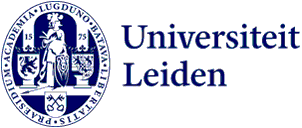
One thesis research project: two articles and a fact sheet: 'I was able to get so much more out of my thesis'
How do you turn your thesis into an academic article? That's a question Floortje Fontein, who conducted research into inclusive leadership, can answer. She looked at how public managers manage a diverse team. She got a 9 for her thesis and worked on several articles based on the results of her thesis research. Floortje Fontein: 'From the beginning, I really wanted to make the most of my research.'

Floortje Fontein (22) just graduated as a master's student at the Institute of Public Administration and recently started working as a policy officer at the Ministry of the Interior and Kingdom Relations. During her thesis research, she was supervised by Bernard Bernards, assistant professor. Bernard: 'For her thesis research, Floortje used data collected by the Leiden Leadership Centre during their assignment for The Senior Civil Service. That's a valuable source of information that we actually wanted to get more out of. Allowing an ambitious student access to this source resulted in a win-win situation. It enabled us to do more research using this data, and for Floortje it was a good opportunity to get a head start on her research because she was able to start working with data right away.'

Involved in the subject
Floortje: 'I also knew immediately that I wanted to work on the topic of inclusive leadership. Apart from the fact that inclusive leadership is close to my values of representation and equality, my interest in doing further research on this topic also stems from my previous publication (in Dutch) on diversity and inclusion in pension fund boards together with Tanachia Ashikali: Diversiteit en Inclusie in Pensioenfondsbesturen. From the beginning, I really wanted to make the most out of my research.'
She is still making the most out of her research. Since the topic of Floortje's thesis is also in line with Bernard's research field, the two have not been idle after completing the thesis. Floortje: 'We made a fact sheet with findings, summarised for a general audience.' Bernard: 'We can hand these out at an event of the Leiden Leadership Centre, for example. In addition, we wrote an article for ‘Binnenlands Bestuur’ (in Dutch, see picture), the magazine for civil servants, and we wrote an academic article - together with Tanachia Ashikali - which is now in peer review, as the third output from the thesis.' Floortje: 'This way, I was able to get so much more out of my thesis.'
Combining education and research
Bernard: 'I would like to use this model more often in the future. We shouldn't look at research and education as two separate things, but as something combined. I think we would gain a lot by doing so. This way, I was able to also put the time I spent guiding Floortje with her thesis into my research, and on the other hand, it's fun and a good experience for the student to get a glimpse of research.'
Nudge in the right direction
To Floortje, the main benefit was that she was able to get more out of her thesis this way. 'Bernard's guidance was very helpful. He communicated clearly and I was able to ask him for feedback all the time.' Conversely, Bernard enjoyed seeing Floortje's drive. 'I didn't have to push her to get up to speed, at most I had to give a nudge every so often to make sure she was heading in the right direction.'
Text: Margriet van der Zee & Judith van Doorn
Floortje examined under what conditions public managers exhibit inclusive leadership. 'I looked specifically at the effect of politicisation on inclusive leadership. That's the extent to which employees experience political influence in their work. I expected that politicisation would cause inclusive leadership of managers to be hampered, because managers would be mainly concerned with processes and steering aimed at creating political support and therefore have less room for ensuring an inclusive working environment for their employees. However, this turned out to be more nuanced. Politicisation can also have a positive effect on inclusive leadership. For example, if political leaders say: we value an inclusive workforce and consider diversity and inclusion important; this can have a positive effect on inclusive leadership. Another conclusion: centralisation hinders inclusive leadership. More pressure results in more hierarchy and decision-making at the top.'
You can find the factsheet here (in Dutch)
